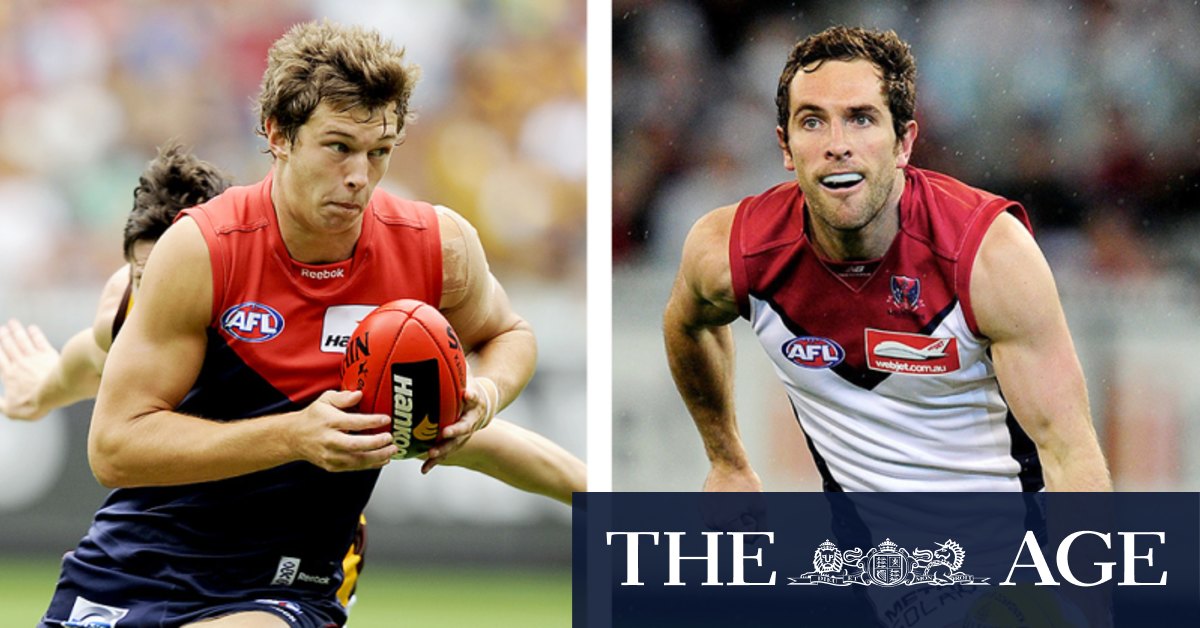Macdonald would later tell Strauss, according to the writ, that he had negotiated with the ASX for the escrow period to be reduced to one year because he was never a director or employee of GetSwift.
Just days before the float in December 2016, Strauss signed an agreement prepared by GetSwift that stopped him from selling the stock for 12 months for “the purpose of complying with chapter nine of the ASX listing rules,” according to the writ.

GetSwift was co-founded by former AFL footballer Joel Macdonald.Credit:Christopher Pierce
The value of GetSwift shares surged from 20¢ to more than $4 within 12 months of listing, but plummeted when the company became embroiled in a series of scandals over breaches of its disclosure and reporting obligations.
In February 2018, the company announced that fewer than half the contracts it had been spruiking were actually generating revenue.
Statements to the ASX announcing agreements with companies such as Commonwealth Bank, Fantastic Furniture and The Fruit Box also failed to mention that clients were only trialling, or contemplating a trial, on the GetSwift platform.
When Strauss’ shares were eventually released from escrow – almost three months after the agreed date – he was forced to sell them at significantly reduced prices. Had he sold at the peak of the market, the footballer-turned-investor would have made more than $15 million.
He would later learn from correspondence with the ASX that it had never imposed an escrow requirement on his shares, which were only ever subject to a voluntary arrangement, according to court documents.
Macdonald, who according to recent social media posts now lives in Florida, did not respond to phone calls or emails from The Age.
In 2019, the Australian Securities and Investments Commission started legal proceedings against the company and its directors, alleging GetSwift repeatedly misled the market in a series of ASX announcements about client agreements.
loading
Late last year, the Federal Court found that GetSwift had made misleading statements and breached its disclosure obligations. Macdonald and another director, Bane Hunter, were also found to have failed to meet their obligations as directors.
Justice Michael Lee said the evidence showed “what might be described as a public relations-driven approach to corporate disclosure on behalf of those wielding power within the company”.
Penalties will be determined during a three-day hearing to be held in January next year.
During a case management hearing last month, ASIC’s lawyer told the court it is seeking a $15 million penalty against the company, million-dollar fines against Macdonald and Hunter, and 12-year disqualifications for each of them.
The company is also facing a class action run by Phi Finney McDonald. A conditional settlement agreement was reached in the Federal Court in mid-2021, without any admission of liability by the company or the directors.
The company left the ASX in January last year to relist on Canada’s obscure stock exchange Neo, a move which was opposed by ASIC and then federal Treasurer Josh Frydenberg.
The company’s Australian subsidiary was placed into liquidation last month and the parent company this week filed for bankruptcy in the US.
The Morning Edition newsletter is our guide to the day’s most important and interesting stories, analysis and insights. Sign up here.
